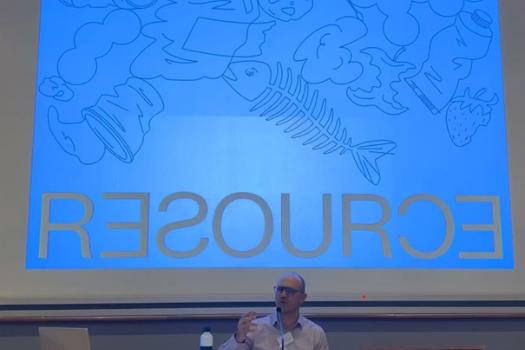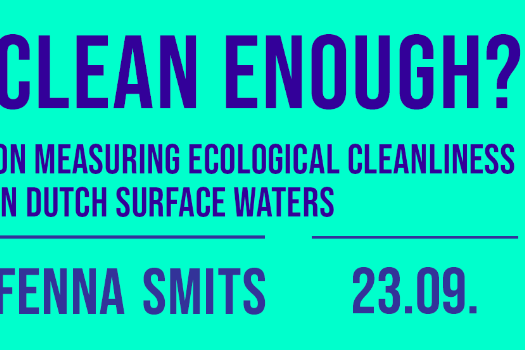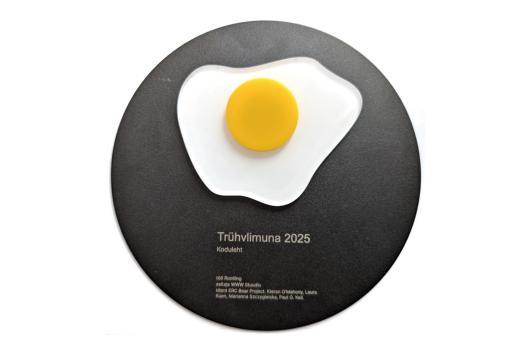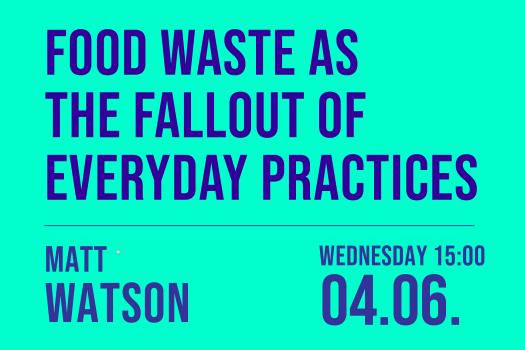
Department of Ecological Anthropology
Department of Ecological Anthropology
Who we are
The Department of Ecological Anthropology is home to a group of scholars who study the dimensions of people’s socio-ecological relations across a diverse range of contexts. We explore human experience, practices, and communities as inextricably a part of more-than-human lives and worlds, and as an environmentally embedded social relation of provision and care. An ethnographic understanding of these lived interrelationships is of critical importance during the Anthropocene.
The department's research reflects on established categories and modes of thinking while offering novel ways to approach and understand pressing questions facing contemporary society. Our subjects are of global importance, yet we are also attuned to those considered 'marginal', finding inspiration in alternative centres of power. Our methods and frameworks are drawn from multiple academic fields, including science studies, critical geography, economic anthropology, medical anthropology, and multispecies studies. Our fieldsites include Czechia, Netherlands, Ukraine, Serbia, England, Australia, Russian Altai, and northeast India. The Department of Ecological Anthropology is a team whose work seeks to engage in conversation and collaboration with scholars both within and outside of our fields of expertise.
ResearchersBROŽ, Luděk KEIL, Paul G.
Postdoctoral researchers
|
Postgraduate researchersJATERKOVÁ, Michaela
Research Associates
|
Key research areas
Projects

Research on Environmental Sustainability and on the Use of Resources in Central European Households (Praemium Academiae, 2024-2029)
Veterinarization of Europe?
Hunting for Wild Boar Futures in the Time of African Swine Fever
(ERC CoG, Horizon 2020, 2020-2025)
European Swine Influenza Network
Past projects
Monographs
Keil, P. G. 2024. The Presence of Elephants: Sharing lives and landscapes in Assam. Abingdon, Oxon: Routledge.
Thiemann, A. 2024. The Politics of Relations: How Self-Government, Infrastructures, and Care Transform the State in Serbia, Oxford: Berghahn Press.
Broz, L. 2024. Evil Spirits and Rocket Debris: In Search of Lost Souls in Siberia. Oxford: Berghahn Press.
Gieser, T. 2022. Leben mit Wölfen: Affekte, Gefühle und Stimmungen in Mensch-Wolf-Beziehungen. Verlag, Bielefeld: Transcript.
Edited volumes and special issues
Lammer, C. & Thiemann, A. eds. 2024. Infrastructures of Value: New and Historical Materialities in Agriculture. A Special Issue in Ethnos: Journal of Anthropology (89(2).
Broz, L., Keck, F., Weich, K. L. eds. 2023. Veterinary Anthropology: Samples from an Emerging Field. Research topic of Frontiers in Veterinary Science https://www.frontiersin.org/research-topics/18283/veterinary-anthropology-samples-from-an-emerging-field
Laine, N., Keil, P.G., Rahmat, K. eds. 2023. Composing Worlds with Elephants. Paris: Institut de recherche pour le développement.
O’Mahony, K., Walker, K. & Boyer, K. 2023. Recollecting the Everyday: Emotion, Memory and Spaces of Mundane Practice. A Special Issue in Emotion, Space and Society 48.
Alexander, C. & Sosna, D. eds. 2022. Thrift and Its Paradoxes: From Domestic to Political Economy (Vol. 10). Berghahn Books.
Thiemann, A. 2024. Fledgling Farms and Failing Health: How the Polypore State Transforms the Multispecies Relations in Serbia’s Raspberry Fields. Journal of Labor & Society 27 (3), 344–369.
Thiemann, A. 2024. Infrastructuring ‘Red Gold’: Agronomists, Cold Chains, and the Involution of Serbia’s Raspberry Country. Ethnos: Journal of Anthropology 89 (2): 1–23. https://doi.org/10.1080/00141844.2022.2163271.
Lammer, C. & Thiemann, A. 2024. Introduction: Infrastructuring Value. Ethnos: Journal of Anthropology 89 (2): 1–24. https://doi.org/10.1080/00141844.2023.2180063.
Arregui, A.G., 2023. Reversible pigs: An infraspecies ethnography of wild boars in Barcelona. American Ethnologist, 50(1):115-128. https://doi.org/10.1111/amet.13114
Bongi, P., Baruffetti, M., Gazzola, A., & O’Mahony, K. 2023. Coexistence in ecological corridors: understanding tolerance of wolves in the Northwestern Apennines, Italy. Human Dimensions of Wildlife, 28 (1): 53-69. https://doi.org/10.1080/10871209.2021.2010288
Broz, L., Keck, F., Weich, K. L. 2023. Veterinary anthropology: Samples from an emerging field. Frontiers in Veterinary Science 10:1053256. https://doi.org/10.3389/fvets.2023.1053256
Fair, H., Schreer, V., Keil, P., Kiik, L. & Rust, N., 2023. Dodo dilemmas: Conflicting ethical loyalties in conservation social science research. Area, 55(2): 245-253. https://doi.org/10.1111/area.12839
Keil, P.G. 2023. Introduction. In Laine, N., Keil, P. & Rahmat, K. (eds.) Composing Worlds with Elephants: Interdisciplinary dialogues (13-27). Paris: Institut de recherche pour le développement.
Nayar, S. & Keil, P.G. 2023. "Lantana Elephants." In Laine, N., Keil, P. & Rahmat, K. (eds.) Composing Worlds with Elephants: Interdisciplinary dialogues (101-109). Paris: Institut de recherche pour le développement.
Keil, P.G. 2023. Musth as a biosocial event: how musth disrupts the relational dynamics of a human-elephant community in Assam. In Laine, N., Keil, P. & Rahmat, K. (eds.) Composing Worlds with Elephants: Interdisciplinary dialogues (233-252). Paris: Institut de recherche pour le développement.
Keil, P.G. 2023. Unmaking the Feral: The shifting relationship between free-roaming pigs and settler Australians. Environmental Humanities 15 (2): 19-38 https://doi.org/10.1215/22011919-10422267
Mašek, P. 2023. ‘It's Only Us, Hyenas, Who Profit Out of It’: Wrecked Cars, Leaked Humans, and the Death of the Person-car. Journal of Material Culture 28(1): 24-39. https://doi.org/10.1177/13591835211055709
Mathijs, E., Baird, J., Blomhoff, R., Büttner, A., Daugbjerg, C., Galli, F., Gwozdz, W., Janssen, M., Jehlička, P., Mattauch, L., Roosen, J., Röös, E., Schneider, T., Trichopoulou, A., Truninger, M., van Doorn, J. & Vandevijvere, S. 2023. Towards sustainable food consumption. Science Advice for Policy by European Academies (SAPEA) Report. SAPEA, Berlin (https://sapea.info/topic/food-consumption/).
Sosna, D. 2023. The Inner Dynamics of Moral Economies: The Case of Waste Management, East European Politics and Societies 0(0): 1-18. https://doi.org/10.1177/08883254231173426
Sosna, D. 2023. Magnetism of strangeness: Silenced histories of landscapes. History and Anthropology 34(3): 390-408. https://doi.org/10.1080/02757206.2021.1946046
Sosna. D. 2023. Mortuary Archaeology Networks. In M. Peeples, J. Munson, B. Mills, T. Brughmans (eds.) The Oxford Handbook of Archaeological Network Research (117-131). Oxford: Oxford University Press. https://doi.org/10.1093/oxfordhb/9780198854265.013.25
Sosna, D., Stehlíková, B., Mašek, P. (2023) Ecologies of quantification in waste management: Landfilling, e-waste recycling, and car breaking. Critique of Anthropology 0(0): 1–22. https://doi.org/10.1177/0308275X231205961
Szczygielska, M., Kowalewska, A. 2023. Tracing Viral Trajectories. Epistemic and Bodily Reservoirs in Interspecies Health. History and Technology. https://doi.org/10.1080/07341512.2023.2251211
Szczygielska, M., Kowalewska, A. 2023. Naïve Boars and Dummy Sows: Porcine Sex and the Politics of Purity. In Aavik, K., Irni, K., Joki, M. (eds.) Feminist Animal and Multispecies Studies: Critical Perspectives on Food and Eating. Brill Press, 45-69. https://doi.org/10.1163/9789004679375_003
Szczygielska, M. 2023. Reading Teeth: Ivory as an Artifact of Classed Whiteness. Historical Studies in the Natural Sciences, 53 (3): 308-331. https://doi.org/10.1525/hsns.2023.53.3.308
von Essen, E., O'Mahony, K., Szczygielska, M., Gieser, T., Vaté, V., Arregui, A., & Broz, L. 2023. The Many Boar Identities: Understanding Difference and Change in the Geographies of European Wild Boar Management. Journal of Environmental Planning and Management https://doi:10.1080/09640568.2023.2269312
Walker, A., O'Mahony, K., & Boyer, K. 2023. Recollecting the everyday: Emotion, memory and spaces of mundane practice. Emotion, Space and Society, 48: 100961. https://doi.org/10.1016/j.emospa.2023.100961
Alexander, C. & Sosna, D. 2022. Introduction: Thrift, Anti-thrift, Scale and Paradox. In C. Alexander and D. Sosna (eds.) Thrift and its Paradoxes: From Domestic to Political Economy. Berghahn: 1-30.
Enticott G., O'Mahony, K., Shortall, O. & Sutherland, L. 2022. ‘Natural born carers’? Reconstituting gender identity in the labour of calf care. Journal of Rural Studies, 95: 362-372.https://doi.org/10.1016/j.jrurstud.2022.09.034
Keil P.G. & Laine, N. 2022. Human-elephant worlds. In J. Wouters & T. Subba (eds.) Routledge Companion to Northeast India. New Delhi: Routledge. https://doi.org/10.4324/9781003285540
Harris, C.B., Sutton, J., Keil, P.G., McIlwain, N., Harris, S.A., Barnier, A.J., Savage, G. & Dixon, R.A. 2022. Ageing together: Interdependence in the memory compensation strategies of long-married older couples. Frontiers in Psychology, 13: 854051. https://doi.org/10.3389/fpsyg.2022.854051
Mašek, P. 2022. Grey greening: quiet sustainability at auto salvage yards. Geografie, 127(1): 55-73. https://doi.org/10.37040/geografie2022127010055
O'Mahony, K. 2022. Inhabiting Forest of Dean borderlands: wild boar and dynamic ecologies of memory and place. Emotion, Space and Society, 45: 100902. https://doi.org/10.1016/j.emospa.2022.100902
Sosna, D. 2022. Saving and Wasting: The Paradox of Thrift in a Czech Landfill. In C. Alexander and D. Sosna (eds.)Thrift and its Paradoxes: From Domestic to Political Economy. Berghahn: 162-184.
Thiemann, A. & Rolle K. 2022. Becoming In-visible: Family Farms in Rural Latvia in the Framework of the EU Common Agricultural Policy. Culture, Agriculture, Food and Environment 44 (1): 41–52. https://doi.org/10.1111/cuag.12286






